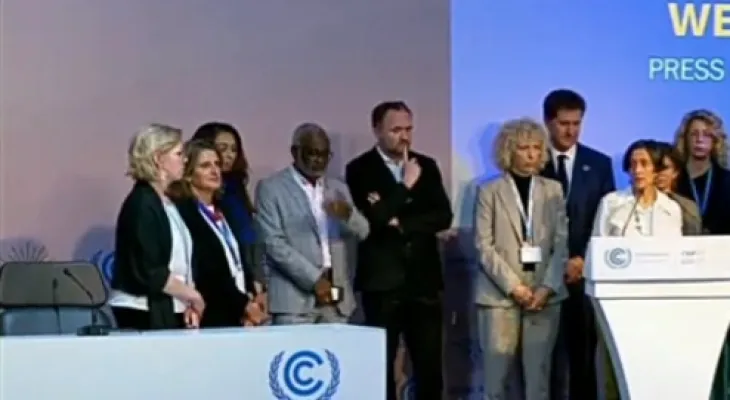Search here
Newspaper
Search here

Arab Canada News
News

Published: November 20, 2022
The COP27 climate conference concluded on Sunday morning in the Egyptian city of Sharm El-Sheikh without reaffirming new targets to reduce greenhouse gas emissions compared to previous summits, but it approved the establishment of a fund to compensate poor countries affected by climate change.
The United Nations Secretary-General António Guterres also expressed his regret that the COP failed to develop a plan "to drastically reduce emissions." Meanwhile, the European Union expressed its disappointment on Sunday with the emissions agreement reached at the summit.
After long and difficult negotiations that far exceeded the scheduled time, COP27 concluded on Sunday morning and approved a text that was the focus of heated debates establishing a fund to compensate poor countries affected by climate change without reaffirming new targets to reduce greenhouse gas emissions.
After more than two weeks of work, the climate conference organized by the United Nations at the Egyptian Red Sea resort of Sharm El-Sheikh ended after a delay of more than a day, making it one of the longest climate conferences. The conference president, Egyptian Foreign Minister Sameh Shoukry, said, "It was not easy," but "we ultimately completed our mission."
Also, a final declaration was approved, which was the result of many compromises, calling for a "rapid" reduction in greenhouse gas emissions without setting new targets compared to last year's COP26 summit in Glasgow.
United Nations Secretary-General António Guterres regretted that the COP failed to develop a plan "to drastically reduce emissions." Guterres emphasized, "Our planet is still in the emergency section. We need a radical reduction in emissions now, and this is an issue that this climate conference did not address."
Also, the European Union expressed its disappointment. European Commission Vice-President Frans Timmermans said at the conference's closing session, "What we have is not enough as a step forward (...) and does not come with additional efforts from major polluters to increase and accelerate their emission reductions," adding, "We are disappointed that this was not achieved."
However, this edition of the conference was distinguished by adopting a decision described as "historic" by its promoters, concerning compensation for the damages caused by climate change affecting the poorest countries in the world. Mohamed Adow, director of the non-governmental organization Power Shift Africa and a strong supporter of establishing the fund, welcomed this step, saying, "At the beginning of the negotiations, the issue of loss and damage was not even on the agenda."
Comments